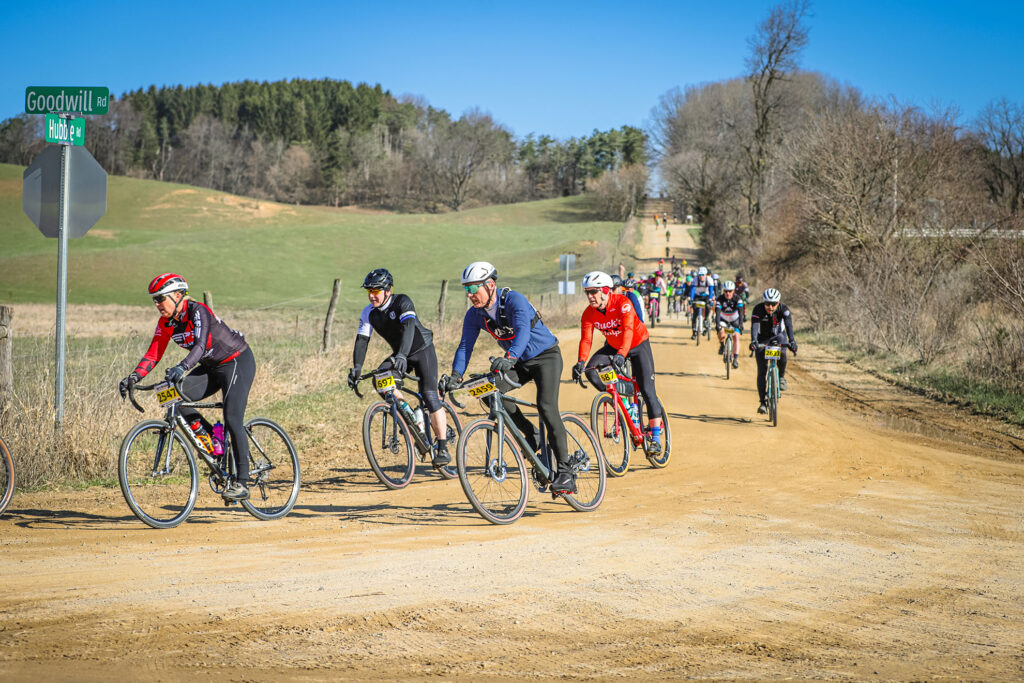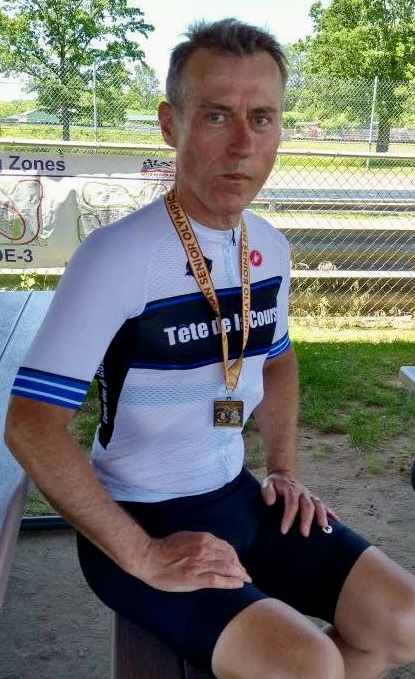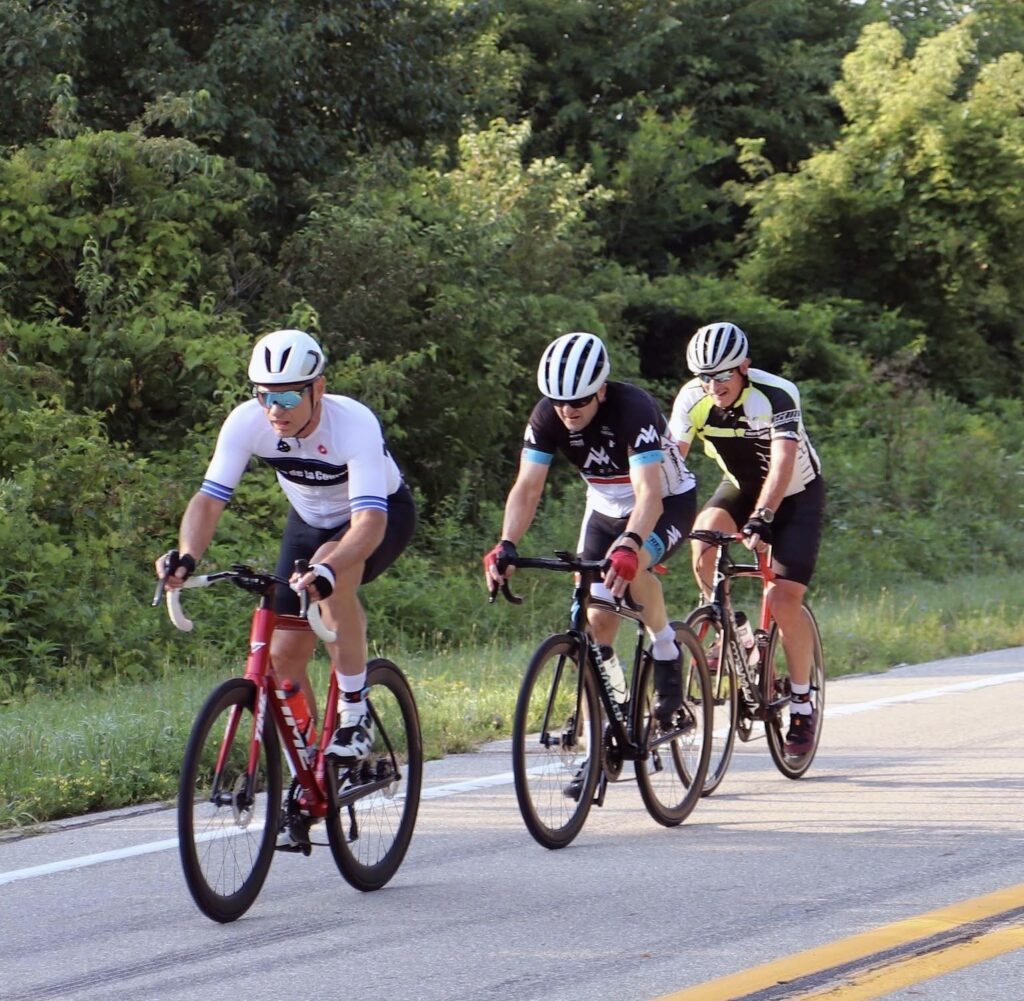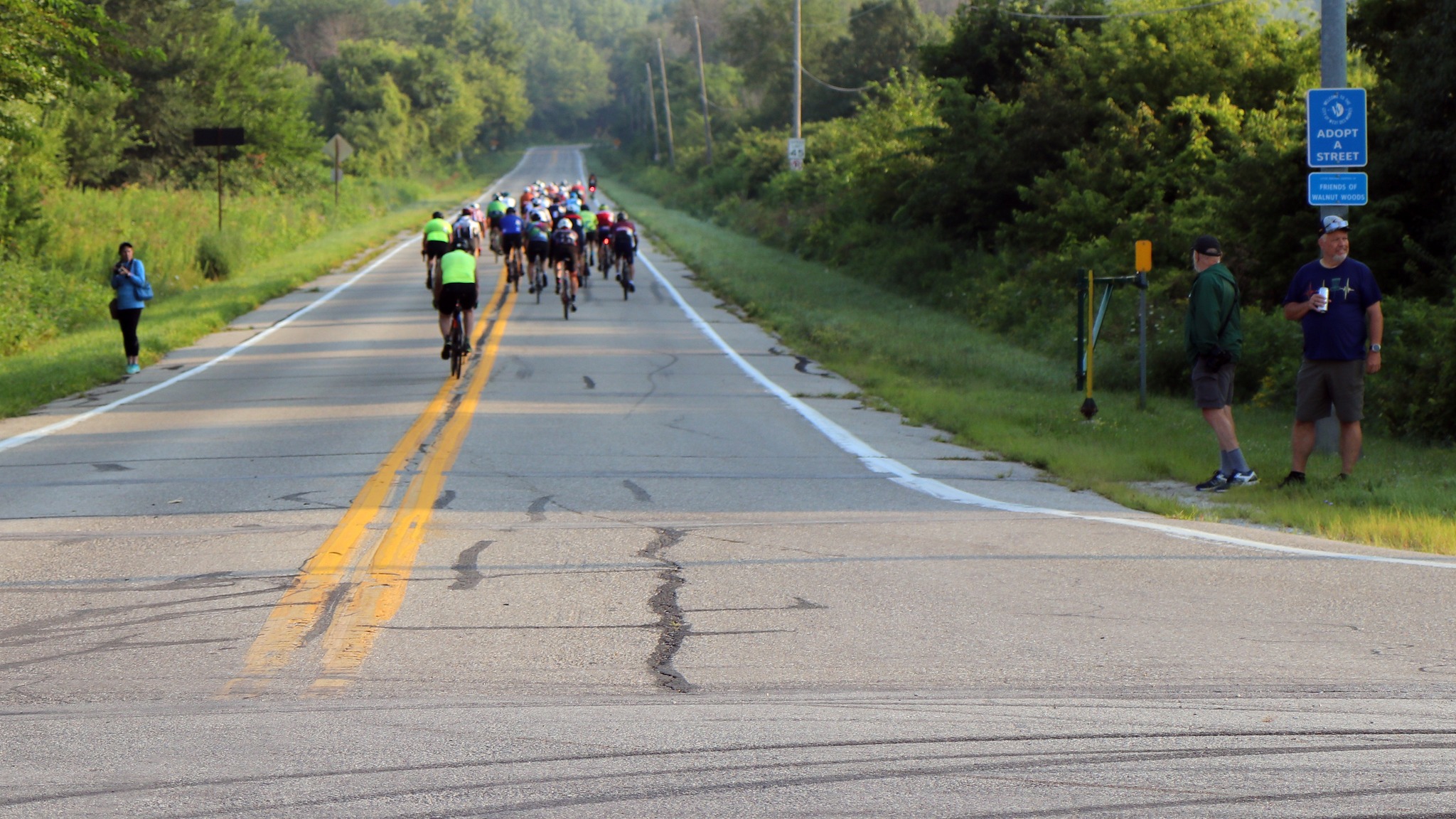Last updated on October 14th, 2025
Table of Contents
ToggleIntroduction: A Season of Rediscovery
At 64, I'm learning that comebacks don't follow neat trajectories—at least mine hasn't. After nearly three decades away from competitive cycling, 2025 marked my second full season back, with three major races that would test whether last year's return was beginner's luck or sustainable progress.
The plan seemed straightforward: use Barry-Roubaix in April as early-season motivation, build through Michigan's summer racing, then peak for the National Senior Games in Des Moines come July. Simple on paper, educational in practice, and humbling in ways I didn't anticipate.
Training: Building the Foundation
My 2025 season benefited enormously from working with Joe Holmes of Tête de la Course Cycling. Joe helped address specific weaknesses: consistency in training execution, anaerobic threshold development, and lactate threshold optimization. These physiological markers separate competitive fitness from recreational riding.
However, one significant weakness remained: a lack of racing and fast group rides. The Traverse City area doesn't offer much in the way of competitive group riding—most of my training was either solo or in small, steady-paced groups. While structured intervals develop physiological capacity, nothing replaces the specific demands of racing: reading attacks, responding to surges, and making split-second tactical decisions under fatigue.
This gap would prove consequential, though I wouldn't fully understand its implications until July.
Barry-Roubaix: Starting Strong
 Barry-Roubaix served its purpose perfectly as the carrot-and-stick that kept winter training honest. The 36-mile "Thriller" course through Barry County's relentlessly rolling gravel roads delivered 2,200 feet of climbing, and conditions were nearly perfect—hard-packed surfaces with no sand to complicate matters.
Barry-Roubaix served its purpose perfectly as the carrot-and-stick that kept winter training honest. The 36-mile "Thriller" course through Barry County's relentlessly rolling gravel roads delivered 2,200 feet of climbing, and conditions were nearly perfect—hard-packed surfaces with no sand to complicate matters.
Racing in the men's 64-69 age group, I finished 24th, missing my ambitious goal of top 20 but exceeding my personal performance targets. The threshold training proved its value immediately: Barry County's short, punchy climbs demanded repeated efforts at anaerobic threshold, the ability to surge over crests and recover quickly, then do it again. The lactate threshold work meant sustaining high power on the flatter sections without accumulating debilitating fatigue.
The entire race experience is detailed in its own recap here. For season purposes, Barry-Roubaix delivered confirmation that the comeback was real and the structured training was producing measurable results.
Michigan Senior Olympics: The Sprint That Almost Was
 The Michigan Senior Olympics 20k road race represented a return to familiar territory after Barry-Roubaix's gravel adventure. The race unfolded tactically, with moves, counter-moves, and the constant chess match of positioning and energy management.
The Michigan Senior Olympics 20k road race represented a return to familiar territory after Barry-Roubaix's gravel adventure. The race unfolded tactically, with moves, counter-moves, and the constant chess match of positioning and energy management.
That critical moment arrived at the finish. Second place in a sprint finish came down to six inches—close enough that neither rider was certain until officials confirmed it. The threshold work proved valuable here too—staying with the lead group through repeated accelerations, then having enough left for a legitimate sprint effort.
More importantly, it built confidence heading into Des Moines. The question was whether state-level effectiveness would translate to national competition.
National Senior Games: Lessons in Humility
 Des Moines represented the season's primary objective—the goal that justified all the preparation. Two races over the week: the 20k and 40k road races, both offering opportunities to test fitness against the nation's top masters cyclists.
Des Moines represented the season's primary objective—the goal that justified all the preparation. Two races over the week: the 20k and 40k road races, both offering opportunities to test fitness against the nation's top masters cyclists.
The 20k: A Tactical Blunder
Sometimes the hardest lessons arrive gift-wrapped in our own poor decisions.
An early break went off the front on the first lap, and I chased it down without thinking through the consequences. I bridged successfully, found myself pulling at the front, then watched the peloton absorb our break, leaving me leading the field into the first climb with my heart rate somewhere in the "this seemed like a better idea five minutes ago" zone.
Here's where that training gap revealed its full impact. I had the fitness to bridge, but I lacked the race-specific experience to recognize it as a bad tactical move. Fast group rides and regular racing teach you to read these situations instinctively: which moves matter, which breaks will stick, when to spend energy, and when to be patient.
Solo training builds the engine. Racing teaches you when and how to use it.
Lesson accepted, if not enjoyed.
The 40k: Finding Redemption
The 40k offered redemption. This longer distance suited my strengths better—sustained power over extended efforts, rather than short, punchy racing that requires constant tactical vigilance.
Nineteenth place in a field of 60 riders at a national championship represented solid execution and validation of the season's preparation. More importantly, it demonstrated improvement over the 20k, suggesting the tactical lessons were sinking in.
Looking Ahead: The Long Game
The 2025 season laid a solid foundation while highlighting areas for further development. Fitness is solid; tactical sophistication needs work. The plan for 2026: more regular racing to accelerate tactical relearning, and potentially traveling to find fast group rides that provide race-specific preparation.
Most importantly, 2025 reinforced a critical lesson: comebacks are marathons, not sprints. At 64, I'm not competing against who I was at 20—I'm competing against who I can become with smart training, realistic goals, and patience with the process.
For Other Masters Athletes
Fellow competitors considering returns or continuing their racing careers should consider:
Race regularly. Physical fitness can be developed through solo training, but tactical skills require regular competition. If you live in an area without competitive group rides, consider this a genuine training limitation worth addressing through travel or race schedule planning.
Work with a coach if possible. Joe Holmes's structured approach addressed weaknesses I hadn't fully recognized and systematically built physiological capacity. Sometimes an objective outside perspective identifies gaps that self-coached athletes miss.
Set specific goals. Abstract desires to "get faster" lack the motivating power of actual race dates. Choose events that excite you, register early, and let those commitments drive training consistency.
Embrace the process. Every season teaches something valuable. The athletes who improve are those who remain curious, analyze performance honestly, and adapt based on what they learn.
Conclusion: The Journey Continues
The 2025 season delivered a 24th-place gravel finish, a silver medal sprint decided by six inches, a tactical lesson I won't soon forget, and a respectable 19th-place finish among 67 national competitors. These results suggest the comeback is progressing appropriately—not perfectly, but meaningfully.
What began two years ago as an experiment has evolved into something more sustainable: a long-term commitment to challenging myself and discovering what's possible when experience compensates for diminished raw power.
The beauty of masters racing lies not in recapturing youth but in applying decades of life experience to athletic pursuits. Patience, perspective, and strategic thinking become advantages that partially offset physiological decline—though as Des Moines demonstrated, tactical sophistication requires recent racing experience to translate knowledge into instinctive decisions.
At 64, I'm no longer chasing what I once was—I'm pursuing what I can still become. The 2025 season established that pursuit as viable and valuable. Now it's time to see how far it can go.
The best part? There's always another season, another race, another opportunity to learn something new. That's what keeps the wheels turning, literally and figuratively.
See you at the start line in 2026.
Epilogue: A Different Kind of Race
I wrote most of this recap in September, reflecting on a season that taught valuable lessons about patience, tactical awareness, and the long game of athletic comebacks. Then, just as I was preparing to publish, I received news that reframes everything: I've been diagnosed with cancer—a tumor in my throat that will require seven weeks of chemo-radiation treatment.
The irony isn't lost on me. I spent 2025 learning that fitness alone doesn't win races, that tactical sophistication matters, and that comebacks require patience and strategic thinking. Now I'm facing a challenge where all those lessons apply, but the stakes are considerably higher than a bike race.
The treatment won't be easy. Seven weeks of chemo-radiation is a different kind of suffering than Barry County's gravel climbs or Des Moines's tactical chess matches. But the mindset remains familiar: I'm training for Life now, with the same discipline and patience that rebuilt cycling fitness after three decades away.
Everything I wrote about the 2025 season remains true. The tactical blunder in Iowa still teaches the same lesson. The silver medal sprint still came down to six inches. Joe Holmes's structured training still addressed critical weaknesses. Those experiences happened, those lessons matter, and that progress was real.
What's changed is perspective. The 2026 racing plans I mentioned? Those are on hold, obviously. However, the fundamental approach—consistently showing up, trusting the process, and accepting that progress occurs gradually through sustained effort—applies whether you're rebuilding threshold power or undergoing cancer treatment.
I don't know what the finish line looks like yet. That's the nature of this particular race. But I see the start line is right here, right now, and the work begins immediately. Same as it always has.
The journey continues, just on a different course than I anticipated.
Disclosure: I funded this entire season myself—race entries, travel, equipment upgrades, and the occasional post-race recovery beer. No sponsorships, no free gear, just a 64-year-old cyclist investing his own money in a comeback that made sense to exactly one person: me. These are honest reflections on a season of racing, learning, and occasionally getting it wrong in educational ways.
Did you enjoy this post or find it helpful? If so, please support our blog!
We write this blog because we love the outdoors. But we also need to earn a living, so we REALLY would appreciate if you click through to one of our reputable affiliates for your online shopping. For your outdoor shopping needs, we are also affiliated with Amazon, BikeTiresDirect, Jenson, REI, NRS, and Nashbar. When you buy from our affiliates, we make a small commission, and this is the only way we earn any income. Plus, it costs you nothing at all - a real win/win!
If you found this helpful, consider subscribing.
I send email updates when I publish new articles—gear reviews, ride reports, training insights, and updates on my cancer treatment journey. I'm not going to flood your inbox. I barely have time to write the articles, let alone spam you with daily emails.
What you get: honest reviews from someone who actually uses the gear, perspective from a master's athlete who's made plenty of mistakes you can learn from, and the occasional story about why cycling at 65 is both more challenging and more rewarding than it was at 25.
